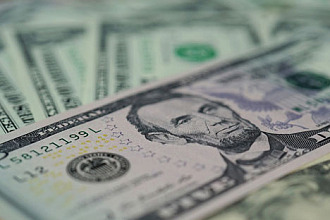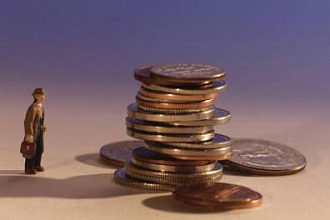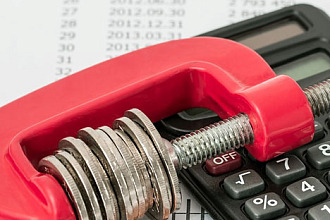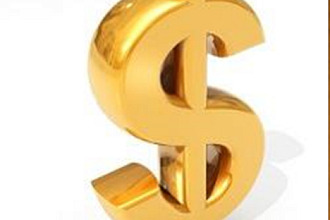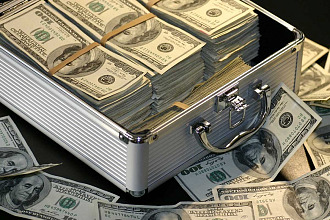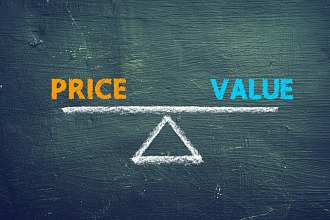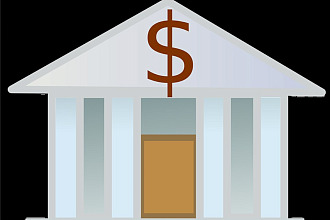Adjectives give 'flavor and taste' to the plain old English noun. However, the descriptive character of an adjective can often go from meaningless to the ridiculous...
In the financial world of debt, adjectives divide debt into two categories: 'good' debt — items we borrow money for that under most circumstances appreciate (i.e. house and business), and 'bad' debt — items which depreciate (i.e. vehicles and clothes). ... In reality, there is no such thing as 'good' or 'bad' debt. There is just plain debt. Twenty-six verses in the Bible specifically speak about debt and every one of them does so negatively.
If what I have just said in the last paragraph about the importance of releasing ourselves from the
bondage of debt rings true, then the following ideas can assist us in becoming debt-free.
TERMINATE CREDIT CARDS
The majority of individuals and families would be better off if plastic became obsolete. As a realist, I am aware that we do need credit cards to conduct financial transactions, such as business travel. Conversely, we certainly do not need to be tempted by the 14 credit and charge cards that the average person carries in their purse or wallet. Today, the average household owes approximately $10,000 on their credit and charge cards, which at an annual rate of 15 percent is costing us $1,500 in interest. If we were to invest that interest each year by paying our credit cards in full every month and earning an average eight percent over the next 30 years, we would have over $180,000 more to spend in retirement.
SHARE VS. SPEND
Another reason we fall into the debt pit is our love affair with things, particularly the need to personally own everything we use. This is far from the truth. Twenty years ago my wife and I purchased a new home in a delightful neighborhood. Each of these newly constructed houses had lawns and a few shrubs in the front and nothing but dirt in the back. Most of my neighbors immediately purchased sod for the back portion of their lot. They also bought a wheelbarrow to help transport the sod from the front street to the backyard. After that task was complete, those
wheelbarrows were stacked against the side of the garage and slowly rusted away. Instead of purchasing a wheelbarrow, I asked my neighbor across the street if he would kindly lend me his for a couple of days. What if my neighbors had purchased or rented just one wheelbarrow to share among us? The expense would have been only a few dollars per household. All of us would have benefitted. I like how Richard Swenson in his book Margins summarizes this concept. "We need to develop a new depreciation of things and a new appreciation of people." 2
MONETARY FAST
Each year over $1,200 is wasted by the average American household in the food items they throw away...Truly, the old adage "Waste not, Want not" still applies, and along with that, the message on your grandmother's embroidery plaque on her kitchen wall that reminds us to, "Use it up. Wear it out. Make it do. Do without." 2
PURCHASE A HOUSE, NOT A CASTLE
Granted, only a small percentage of young families can afford to purchase a home without acquiring a mortgage. However, that does not mean living your whole life with a mortgage hanging over your head. Tragically, according to a recent poll, 70 percent of Baby Boomers plan to continue paying on their mortgage after retirement. If you are currently thinking about purchasing a home... the secret is to choose a property smaller than your ideal and that
is also approximately 80 percent of the maximum amount the lending organization will qualify you. Then aggressively retire that mortgage in half the time by paying additional principle. For example, if your home loan is $100,000 for 15 years, you could pay it off in seven years by adding approximately a third more in principle with each payment. This means that in seven years you would have saved a sizable deposit for your next home, your dream home, while keeping a realistic monthly payment for its mortgage.
According to a recent survey conducted by LendingTree, nearly three-quarters of Americans envision themselves being debt-free. Unfortunately, only 50 percent have a plan for how they will reach that worthwhile goal. Decide today to dig yourself out of debt by making a debt-free plan and daily repeating this new motto: "The less debt my family has, the happier and better-off we will be." 3
WHAT'S YOUR DEBT/INCOME RATIO?
When it comes to debt, many individuals and families are like the preverbal ostrich hiding their heads in debt-drowning sand. But if you would like to know if your debt is at a dangerous level, then you should find out your Debt/Income ratio (D/I). For many years bankers have used this Debt/Income ratio when deciding to approve an individual or a family's house loan application.
To figure out your D/I ratio, first take a piece of paper and make two columns. In the first column, list the total amount you currently owe on each liability (i.e. telephone, utilities, vehicle payment, etc.) Do not list the original amount owed but the current outstanding balance. In the second column, list the monthly amount you pay on each of these bills. Secondly, determine your monthly income plus any other steady revenue, such as interest on investments. Do not include hoped for bonuses, tax refunds or overtime.
Finally, divide your monthly bill payments by your total monthly income. An example of this would be monthly bill payments of $1600 and a monthly income of $4,000. Your D/I ratio is 40 percent. Once you have done your calculation and come up with a percentage, the following is what you need to know.
45% to 50%
At this level you are barely keeping your head above water and there is a greater chance that monetary
trouble is lurking around the next financial corner.
50% or higher
Immediately come up with a strategy to take charge of your mounting debt and reduce it before it is to late. 4
35% or less
A debt ratio of 36 percent or less is generally considered healthy. Your banker will probably be willing to give you a loan.
35% to 40%
Credit card companies will most likely be willing to offer you a credit card, but your banker will be less
reluctant to approve a mortgage.
Reference:
- Michael Spencer, Mere Churchianity, Waterbrook Press, 2010, p. 129.
- Concept from Richard A. Swenson, M.D., Margin, NavPress, 2004, p. 145-7.
- Brad Reagan, Live Debt-Free, SmartMoney, September 2007, p. 62.
- Gerri Detweiler, Is Your Debt at Dangerous Levels? Sound Investing, August 2008, p. 118.








